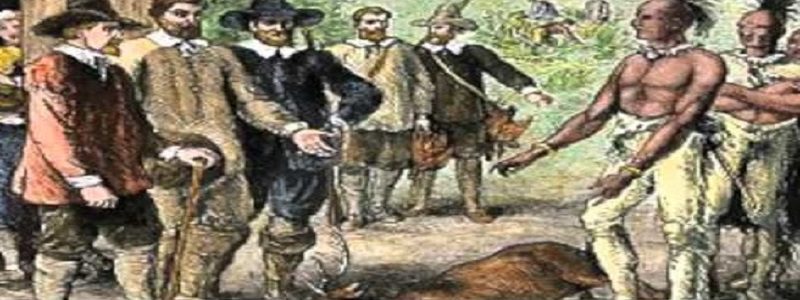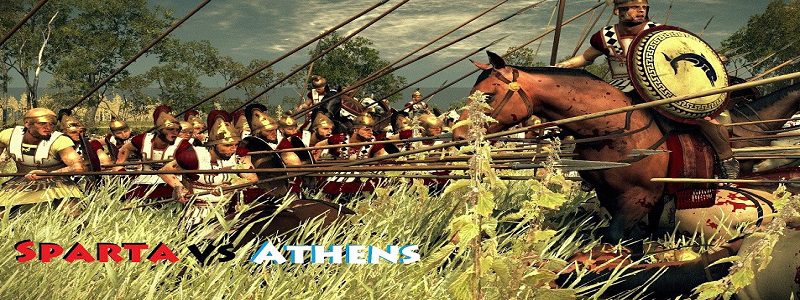Clashing Values: ‘Antigone’ and Argument-Based Discussions in Small Groups
Overview
It has been said that we can understand what a character in a work of literature most values, and how true they are to their values, by looking closely at what that character is willing to sacrifice and for what purpose. Classical drama established a kind of literary template by setting up a clash of values represented by characters in conflict with each other.
There is certainly a clash of values embedded within the dramatic conflict in Sophocles’ Theban drama Antigone (441 BCE). These argument-based small-group discussions get students looking at the way that this seminal drama sets the values of Athenian society (and thus, therefore, much of Western society thereafter) off against each other and examines how they interact and how they are prioritized by the play (and by ourselves).
Mock Trial: Investigating the Origin of the Oppression of Native Americans
Overview
Blood on the River is a very well-regarded 2006 young adult historical novel by Eliza Carbone. Told from the point of view of 12 year old English orphan Samuel Collier, it is set in 1606 – 1611 and tells the story of the settlement of the Jamestown colony in Virginia, from the erection of the first domiciles, to the building of the fortress that would protect the fragile colony, to the “Starving Time” in the winter of 1609-10, and beyond.
Threaded throughout the novel there are conflicts between the British aristocracy (which both sponsors the trip, in the form of the Virginia Company, and leads it, in the persons of several Captains) and commoners, and between the colonists and the native population of Virginia. These conflicts form the heart of the novel’s concerns and interests. This argument-based project brings these conflicts together in a debatable question that plays itself out in the classroom in the form of a mock trial that puts the British aristocracy on trial for, in effect, originating the violent oppression of the Native American population that Blood on the River anticipates and (in its closing pages) foretells.
Hidden Intellectualism
Foreword
Former Modern Language Association President (2008), prominent education theorist, and ACE founding adviser, Gerald Graff, tells a story in his essay “Hidden Intellectualism” of how he learned to be an intellectual not in school, which he really didn’t like, but by arguing about sports (especially baseball, especially the Cubs) with his friends. Graff sees his story as containing an important lesson for the improvement of K-12 American public education.
Argument-Centered Education embraces this lesson through the resources we produce, the training we conduct, and the implementation coaching we provide. To take two recent examples of argument-centered projects we have work on with partner schools: (1) the Athens vs. Sparta Project debatifies the sometimes-esoteric study of ancient Greece and its seminal influence on Western civilization, and (2) our Cosmetics, Plastic Surgery, and Authentic Beauty Project accesses teens’ (and not just teens’) preoccupation with physical appearance and academizes it into an argument-based, sustained study.
Athens vs. Sparta: An Argument-Based Project, with Documents, Debates, and Discussion
Overview
Ancient Greece is often considered the birthplace of Western Civilization. When we study the place and time of ancient Greece — in, for example, Humanities, World Studies, European History, Civics, or Government — we are studying seminal antecedents of the United States — social, cultural, educational, political. One angle in this content is to contrast the primary city-states, and Peloponnesian War antagonists, Athens and Sparta.
This multi-layered argument-based project has students study the two city-states through five domains of these comparable but contrasting societies: economy, education, government, military, and treatment of women & slaves. Students engage in close examination of primary and secondary documents, extensive written and oral discussion of the arguments in these documents, and Table Debates (with an argumentative writing component).
Information Clustering & Understanding Photosynthesis
Overview
Photosynthesis is one of the most essential natural processes studied in biology. Students can understand very little about plants, trees, vegetation, and crops without understanding the process by which they convert sunlight and its energy, in combination with carbon dioxide and water, into carbohydrates and oxygen (and a bit of gaseous water).
This activity builds students’ understanding of the process of photosynthesis by having them cluster information about the process of photosynthesis, having them critique other students’ information clustering, and then finally having them respond to other students’ critiques.






